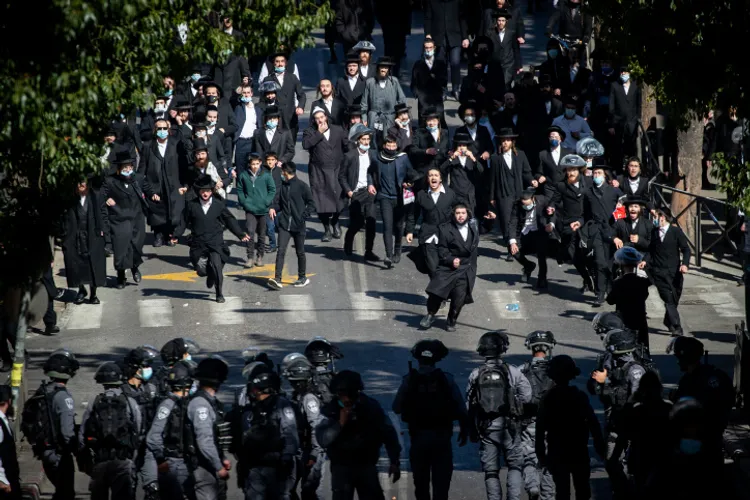10 Oct 2024
Wars and Refugees: To Israel and Beyond
The Israeli military has reportedly launched a recruitment campaign offering asylum seekers residency in exchange for their service in the Israeli Defence Forces (IDF). The Israeli government already struggling with a shortage in manpower needed for its war on multiple fronts including in Gaza and Lebanon. While this policy is not totally pioneered by Israelis, it faces serious legal and humanitarian repercussions. Additionally, it adds a layer of uncertainty to the fate of refugees and asylum seekers in Europe who might face the same fate as asylum seekers in Israel given the ongoing Russia-Ukraine War and problems with conscription.
2 Apr 2024
Israel-Hamas War: A Potential Breaking Point for Israeli Society
The dynamics between the Haredi Jewish community and the state of Israel are intricate and peculiar, shaped by many complex factors. Despite their historical opposition to the state's establishment and its Zionist underpinnings, they have emerged as prominent beneficiaries within Israeli society. Despite their active involvement in politics, with dedicated parties and ministerial representation in successive Israeli governments, the Haredi community seeks to diminish government authority over them. They maintain superficial compliance while preserving their self-organised societal structures.
These contradictions have been a continual source of critique within Israeli society since the State's inception. Successive Israeli administrations have consistently granted numerous privileges to the Haredi Jewish community, influenced by their political and religious sway. Chief among these privileges is their exemption from mandatory conscription, unlike other societal groups, accompanied by various financial incentives. However, the landscape is poised for significant transformation following the Gaza war.
This analysis aims to delve into the economic traits of the Haredi Jewish community and explore their broader economic impacts on Israeli society.
22 Mar 2024
Will Netanyahu Conscript the Haredim?
This article was originally published on Ahram Online on Mar. 22, 2024.
The question of conscripting Ultra-Orthodox Jews, commonly known as Haredim, into the Israeli military has once again taken centre stage. This resurgence in debate follows calls by secularists, supported by several war cabinet members, including Defence Minister Yoav Gallant. During a press conference on Feb. 28, they advocated for amending conscription laws to include the Haredim.
The urgency behind these calls is fuelled by various challenges Israel currently faces. These include a labour shortage exacerbated by the ongoing Israel-Hamas War and tensions along the northern border with Hezbollah. The potential inclusion of Haredim in military service has sparked significant controversy within the Haredi community. Chief Sephardi Rabbi Yitzhak Yosef even issued a warning of a mass exodus of Haredi Jews from Israel if conscription becomes mandatory.
This latest call reignites an enduring conflict within Israeli society, rooted in the exemption privileges historically granted to Haredim. The issue remains unresolved due to the influence of religious parties, the political considerations of prime ministers, and the social dynamics within Israeli society. The exemption policies have long been a contention, particularly among secular citizens. Tensions escalated during the costly mobilisation efforts for the Israel-Hamas War, with over 66,000 Ultra-Orthodox youths exempted from military service in 2023 alone. This disparity has led to increased demands for the inclusion of Haredim in the military service, especially given the multiple security threats faced by Israel since Oct. 7.
Prime Minister Benjamin Netanyahu's return to power in late 2022 alongside the right-wing bloc underscored their determination to challenge conscription policies. Netanyahu's efforts to amend the Judicial Authority Law, dubbed "judicial reform", were met with widespread opposition from the secular community, leading to massive demonstrations.
These amendments aimed to circumvent a 2017 Supreme Court ruling that invalidated legislation preventing Haredim's conscription. Despite government concessions, including multiple deferments of recruitment deadlines, the issue remains unresolved. As the latest extension is set to expire on Mar. 31, a looming question remains: Will Netanyahu conscript the Haredim?


